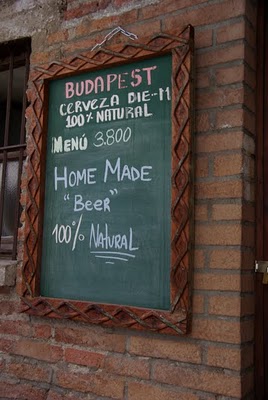|
English Language
|
Unnecessary Quotation Marks
Ever drunk any home made "whisky"? or eaten "quality caviar"? or "Farmhouse fresh" eggs?
You might be wise not to. Anything described as whisky has to conform to very strict standards (and probably be a product of Scotland) though using quotation marks might just let you off the hook so you can explain you weren't serious, just quoting. So are these (below) really the best prices available?

The marks here may be used in the sense of "so-called but not really" - and what does "Farmhouse fresh" mean anyway? It may suggest that it is fresh from the farm, with all the connotations of rosy cheeked farmers' wives and contented poultry but it doesn't actually mean anything. IT's an advertising "pouf". Can I use that word in polite company? Maybe only by placing it in quotation marks....
"Quotation marks have a number of functions - four of which are described here - and are also widely misused.
http://www.unnecessaryquotes.com/ pictures a wide variety of amusing and confusing uses of quotation marks.
1. The primary use of quotation marks is to show speech, to separate speech from non-speech. For example
"Shall we go out," asked Bob, "or stay at home?"
Speech marks surround the words actually spoken and commas also separate speech from non-speech. The lower case "or" is required because there is no new sentence - the sentence continues, broken only by the non-speech.
2. In the sentence above I have again used quotation marks.
This is the second use of the punctuation.
I have chosen to highlight a word by quoting it.
Note the key point is I have quoted it so it is clear that it is not my own piece of writing
I have differentiated this one word from the rest of the sentence because it has a different origin. I have not used quotation marks simply for emphasis.
Emphasis can be more clearly made by using typography - bold or italic or underline. This is the underlying error made by many of the graphics collected at http://www.unnecessaryquotes.com/
Similarly, but more obviously, I might quote someone else and want to show that these were not my own words:
In his phrase, "By hook or by crook," the writer is referring to ….
3. A third use of quotation marks is to show that a phrase is not accepted, by the writer or more generally.
Writing formally I may refer to an informal phrase and want to show it is not my normal speech.
Reviewing her costume we agreed it wasn't really "tarty" enough.
Here the word "tarty" conveys the idea more effectively than, say, "evoking the character of a lady of the night."
4. Finally, a word or phrase may need to be pointed out as being untrue - a case of irony or sarcasm perhaps.
So the graphic showing "Home made "beer" suggests that it's not really beer - it's perhaps some brown liquid but not really beer.
Similarly it could have appeared as "Home made" which would suggest it isn't!
I'm told that the phrase "working from home" is uttered in some offices as if it was in quotation marks (pause before it, exaggerated intonation) when what is implied is "staying in bed."
Note the word "free" is a common example of something that does deserve to be in quotation marks. This is a way of indicating that, though it may seem to be free it is not, in fact. A free sofa might in fact require a number of vouchers, or other purchases to be made, or to defer payment for some time.
| Look at the graphics at http://www.unnecessaryquotes.com/ and consider the four types of apostrophe use described above. Make a selection of the graphics and annotate each one describing the error in linguistic terms. |
 Why? It seems the rooftop is barely heated at all as the quotation marks qualify instead of emphasising it as the writer intended.
Why? It seems the rooftop is barely heated at all as the quotation marks qualify instead of emphasising it as the writer intended.
So next time you see those floating quotation marks have a think about what they are hiding.
And when someone makes that weird "two-fingers of each hand sign in the air" to suggest "quotation marks" while they are "speaking", treat them with "care".
|
|